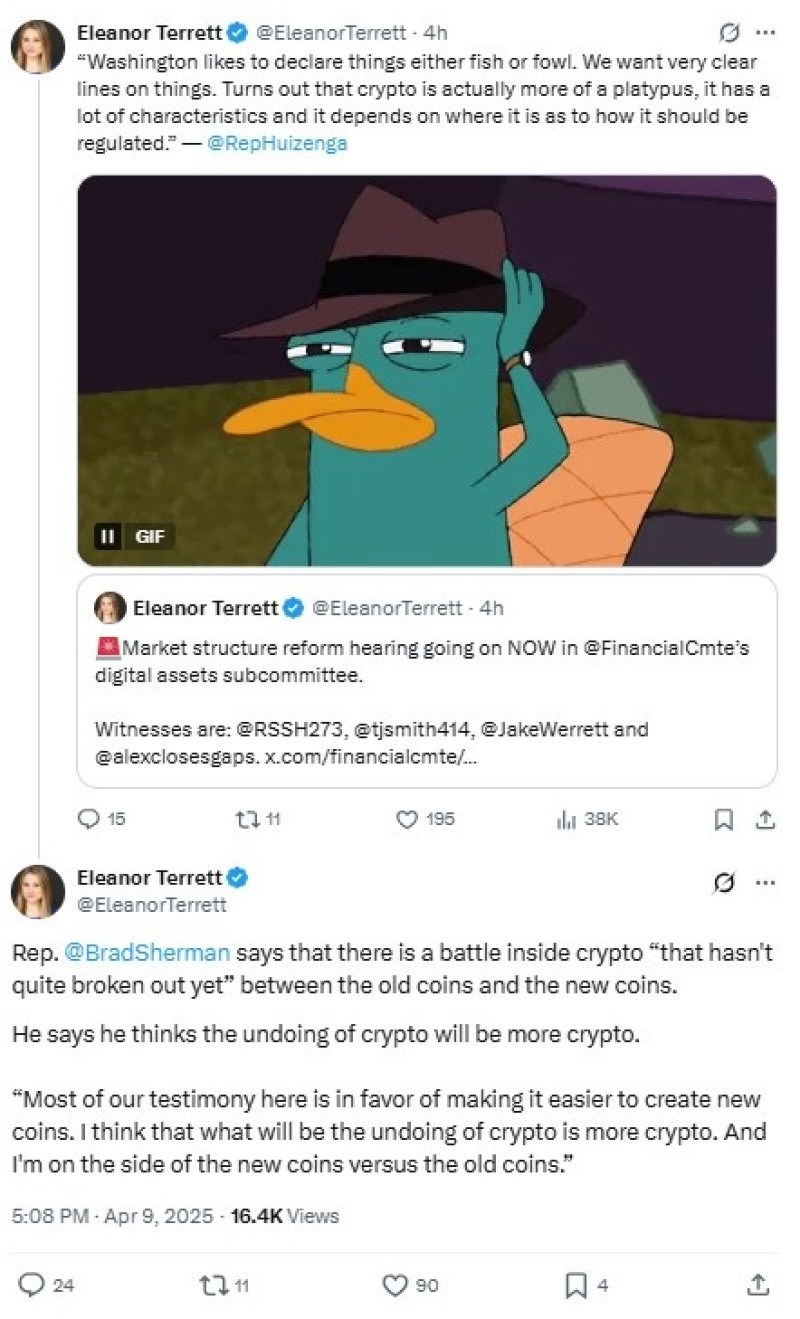Congressman Brad Sherman revealed an unexpected stance favoring new cryptocurrency projects during a recent House Financial Services Committee hearing, believing their proliferation will ultimately undermine the entire crypto industry.
Brad Sherman Strategically Backs "New Coins" to Destabilize Crypto Market
During a recent United States House Committee on Financial Services hearing, Democratic Congressman Brad Sherman made a statement that initially appeared supportive of cryptocurrency innovation. The 70-year-old legislator declared that he sides with "new coins" entering the market, marking what seemed like an unusual shift for one of Capitol Hill's most vocal crypto critics.

However, Sherman's rationale quickly revealed his true intentions. The congressman explained that he welcomes the flood of new cryptocurrencies precisely because he believes their proliferation will ultimately lead to "the undoing" of the entire crypto industry. He highlighted an emerging conflict within the digital asset space, noting, "There is really a battle that hasn't quite broken out yet between the old coins and the new coins."
Sherman Maintains Long History of Anti-Cryptocurrency Advocacy
Despite this seemingly pro-crypto statement, Sherman's track record demonstrates consistent opposition to digital assets. Throughout his congressional career, he has repeatedly emphasized what he perceives as cryptocurrency's illegitimate use cases while openly advocating for the industry's collapse. The California representative has been particularly focused on Bitcoin, repeatedly calling for a comprehensive ban on the leading cryptocurrency.
Sherman's skepticism extends beyond Bitcoin to other prominent digital assets. In 2022, he publicly stated that XRP, the token associated with Ripple, constitutes an unregistered security. This position aligned with the SEC's lawsuit against Ripple, which has become one of the most significant regulatory battles in the cryptocurrency industry.
Brad Sherman Echoes Traditional Critics on Cryptocurrency Scarcity
Sherman's latest perspective mirrors arguments frequently made by traditional financial advocates like gold proponent Peter Schiff. These critics often challenge Bitcoin's claim of scarcity by pointing to the continuous creation of alternative cryptocurrencies. Their argument suggests that while Bitcoin itself may have a fixed supply, the broader cryptocurrency ecosystem has unlimited potential for new token creation, potentially diminishing the value proposition of established coins.
The congressman articulated a similar viewpoint last year when he sarcastically suggested that Bitcoin could eventually be replaced by fictional cryptocurrencies he dubbed "HamsterCoin," "Cobracoin," or "Mongoosecoin." In an ironic twist, Sherman's mockery reportedly inspired the actual creation of these meme tokens, demonstrating the cryptocurrency market's rapid response to even negative publicity.
Sherman Views Market Saturation as Cryptocurrency's Downfall
The congressman's strategy appears to embrace what some might call a "divide and conquer" approach to cryptocurrency regulation. By supporting the proliferation of new tokens, Sherman seemingly hopes to fragment the market, dilute investor attention, and potentially create conditions that would justify stricter regulatory intervention.
Sherman's perspective assumes that market saturation with thousands of cryptocurrencies will inevitably lead to increased confusion among consumers, higher instances of fraud, and eventually public disillusionment with the entire sector. This viewpoint appears to underestimate the market's potential to self-regulate through natural selection processes where stronger projects survive while weaker ones fail.
For crypto advocates, Sherman's comments might serve as a reminder of the ongoing ideological divisions within Congress regarding digital asset regulation. While some legislators have embraced the innovation potential of blockchain technology, others like Sherman remain deeply skeptical about its fundamental value and legitimacy within the financial system.
As the cryptocurrency industry continues to evolve and seek regulatory clarity in the United States, perspectives like Sherman's illustrate the complex political landscape that digital asset companies must navigate when engaging with policymakers and regulatory bodies.
 Usman Salis
Usman Salis

 Usman Salis
Usman Salis


